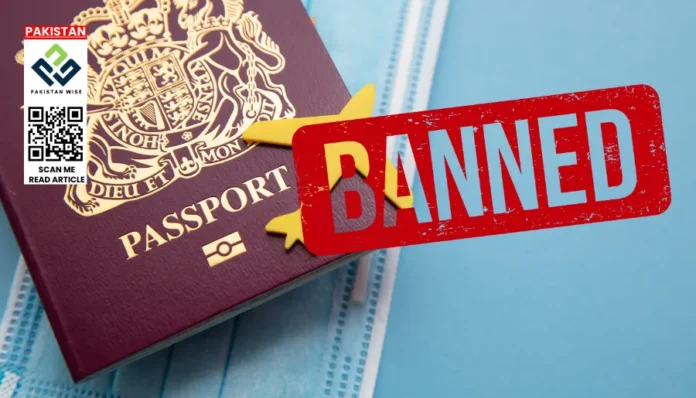Trump administration is contemplating a significant expansion of its controversial “travel ban” policy, potentially impacting a much broader range of countries than the initial restrictions implemented during the former president’s first term in office.
According to the draft proposal prepared by US national security officials, the new travel restrictions could target as many as 41 countries across the globe, including several close allies and partners of the United States.
The list categorizes the affected nations into three distinct tiers, each facing varying degrees of potential visa and travel limitations:
Tier 1: Partial Visa Restrictions
The first group comprises 27 countries that may face a partial suspension of US visa processing. This list includes Pakistan, Mongolia, Suriname, Nauru, Tuvalu, and several other nations. The US government has reportedly given these countries a 90-day deadline to address specific “shortcomings” identified by American authorities, failing which their citizens could see restrictions on their ability to obtain US visas.
Tier 2: Full Visa Suspension
A separate “watch list” has been proposed for 10 additional countries, including Albania, Bosnia, Iraq, Kazakhstan, Kyrgyzstan, Moldova, Montenegro, Serbia, Tajikistan, and Uzbekistan. Residents of these nations may face a complete suspension of US visa issuance, making it extremely difficult for them to enter the United States.
Tier 3: Business and Student Visa Restrictions
The third category comprises 5 countries – Guinea, Mali, Mauritania, Niger, and Senegal – that would see restrictions primarily affecting business and student visas, with certain exceptions for other immigrant visa classes.
The potential expansion of travel restrictions has raised significant concerns, particularly given the inclusion of several US allies and partners in Europe and Asia. The prospect of Norway, Sweden, and Denmark facing travel limitations has drawn widespread attention and criticism, as these nations have traditionally maintained close diplomatic and economic ties with the United States.
The Nigerian government has dismissed reports of a possible travel ban as “unsubstantiated,” stating that it has not received any official communication from US authorities regarding such measures. However, the recent deportation of the Nigerian ambassador to Mongolia from New York has added to the tensions between Washington and Abuja, with the US providing limited explanation for the incident.
These developments come as the Biden administration has signaled a more nuanced approach to immigration policy. On his first day in office, President Biden signed an executive order mandating streamlined vetting procedures for all international nationals seeking entry into the US, a move that aligns with his long-standing campaign promises to reform legal immigration and enhance national security.
As global political dynamics continue to evolve, the countries included on the proposed travel restriction list will likely engage in intensive diplomatic efforts to address any concerns raised by the US government and mitigate the potential impact on their citizens’ ability to travel to and from the United States.
The Trump administration’s consideration of these sweeping new travel restrictions has once again thrust the issue of immigration and national security to the forefront of the political discourse, setting the stage for a potential clash with the Biden administration’s more nuanced approach to these complex and sensitive matters.

